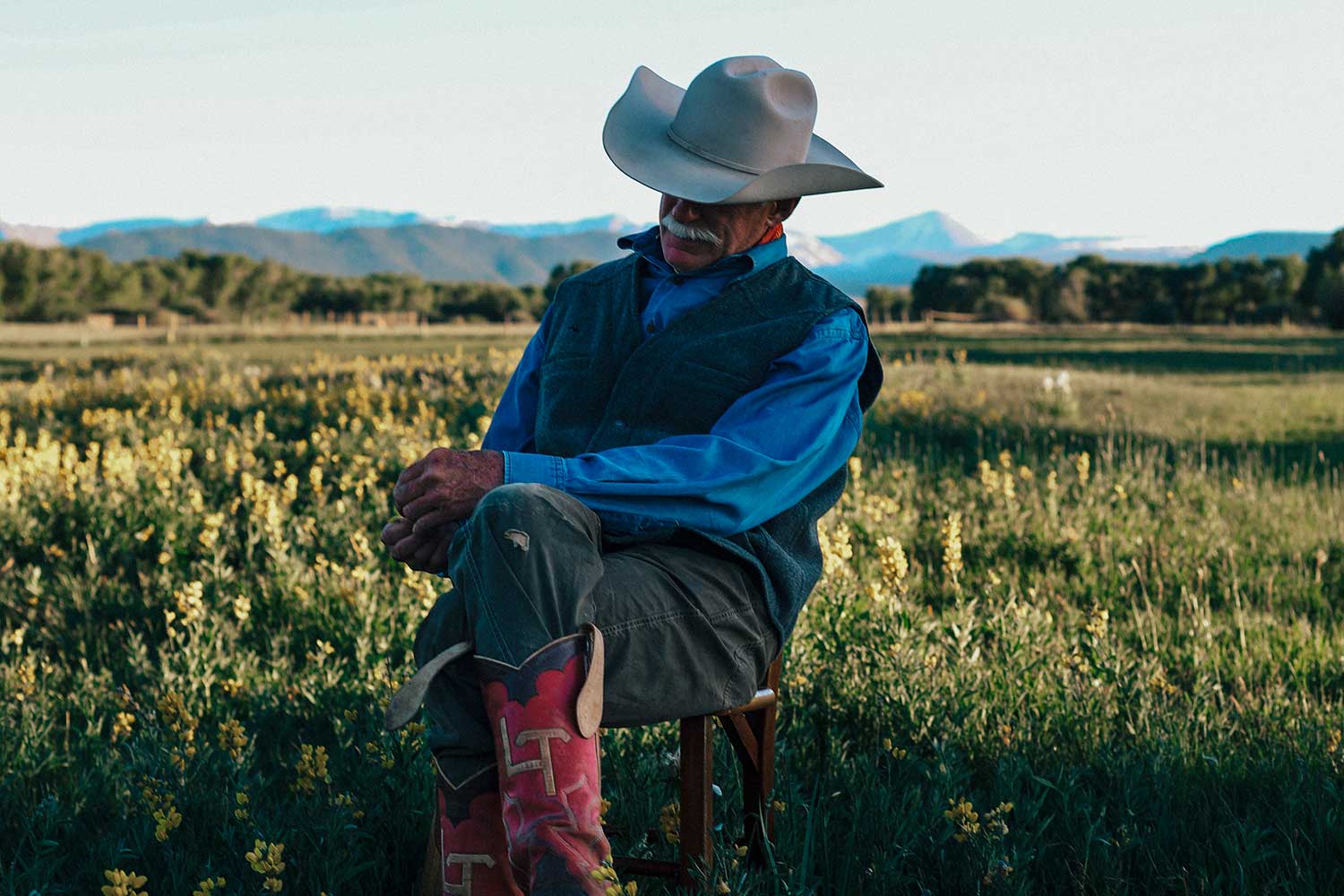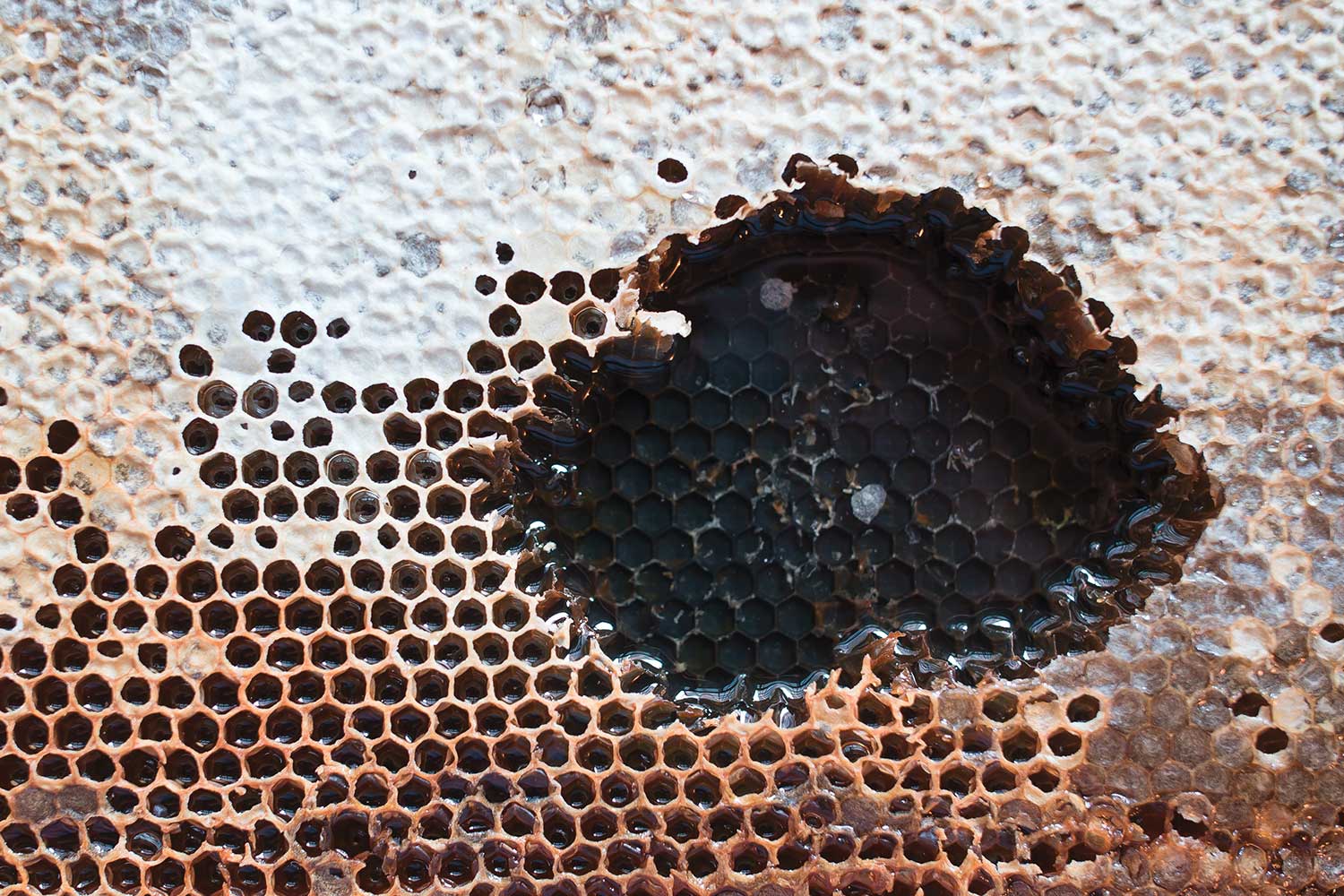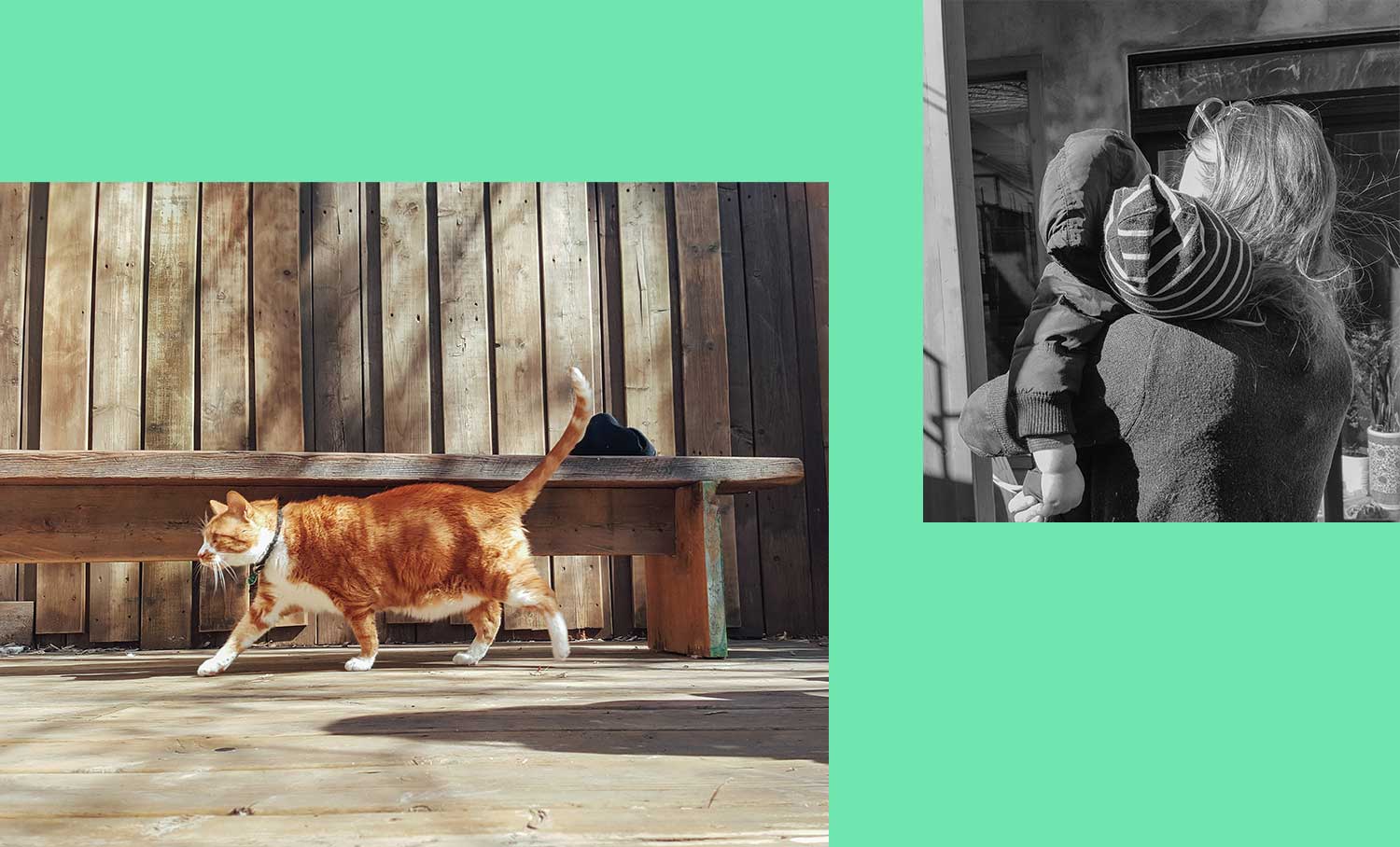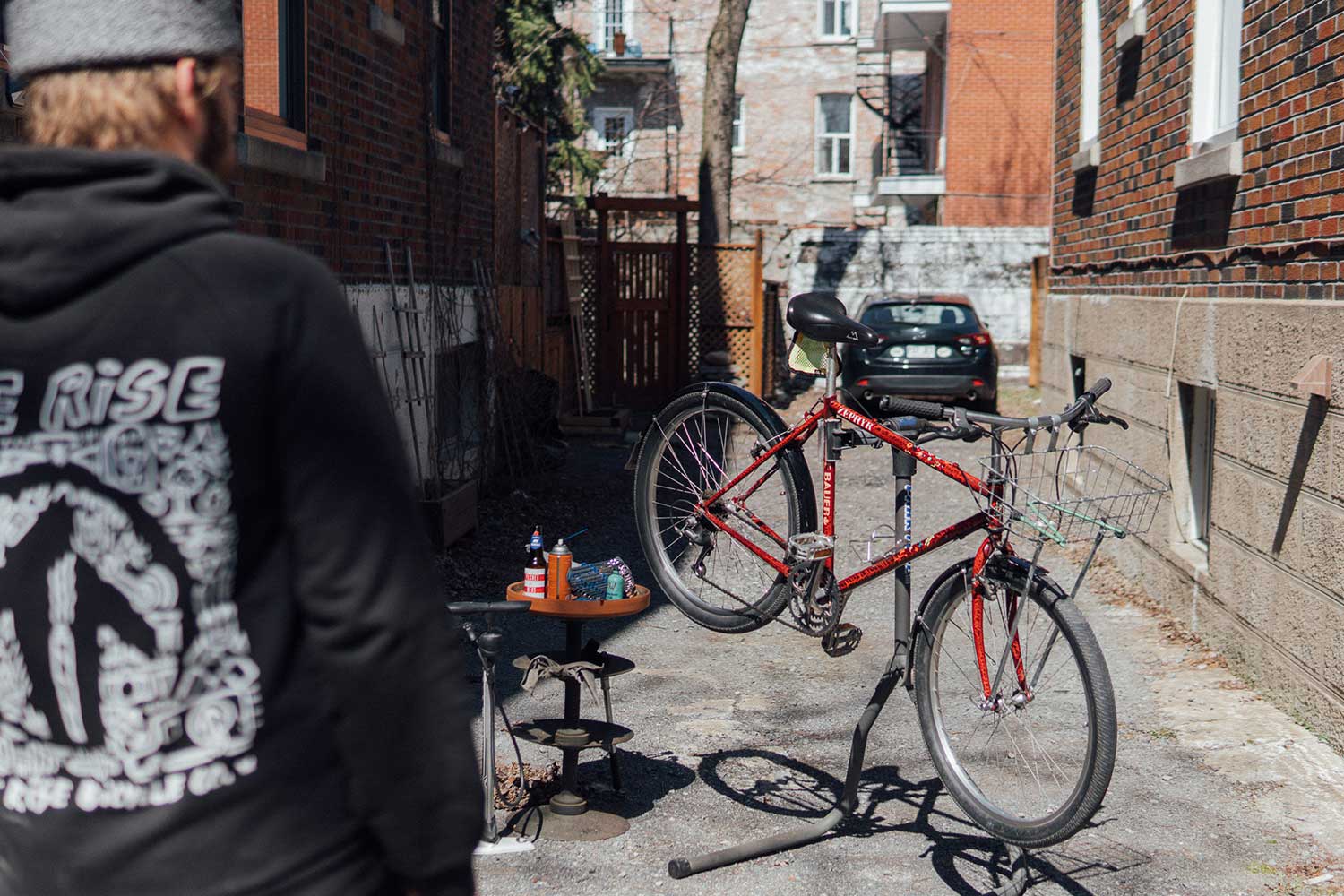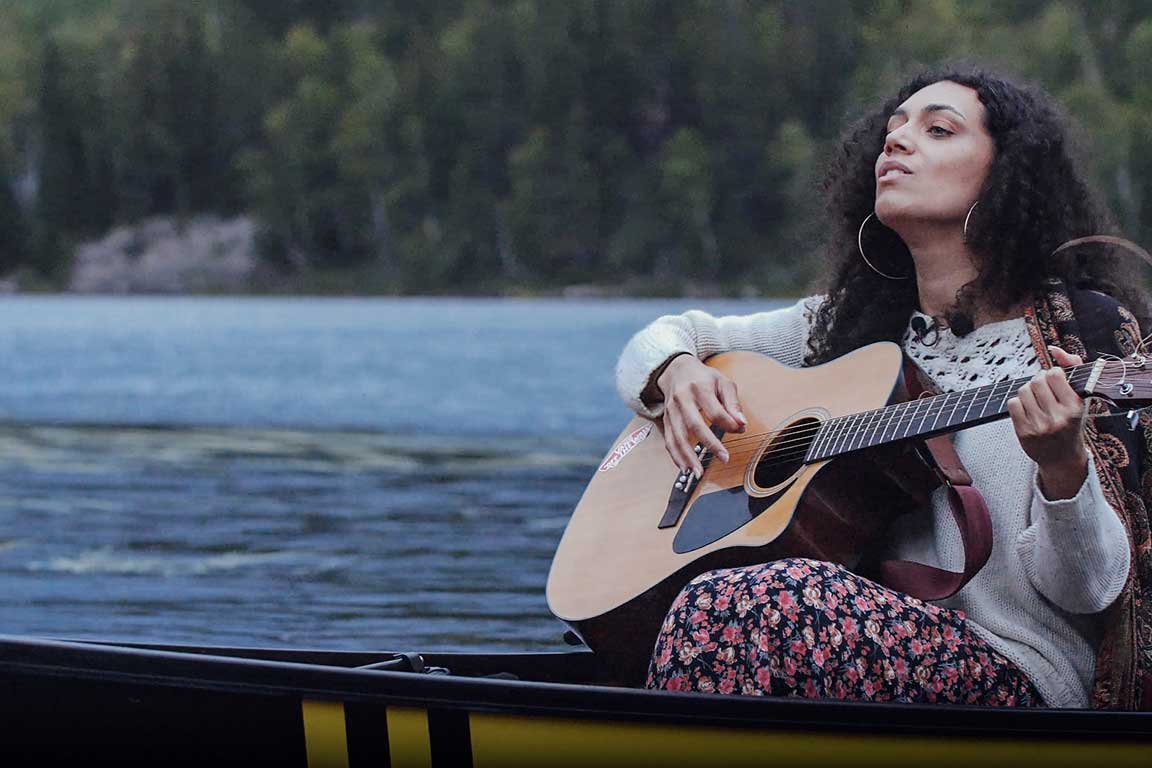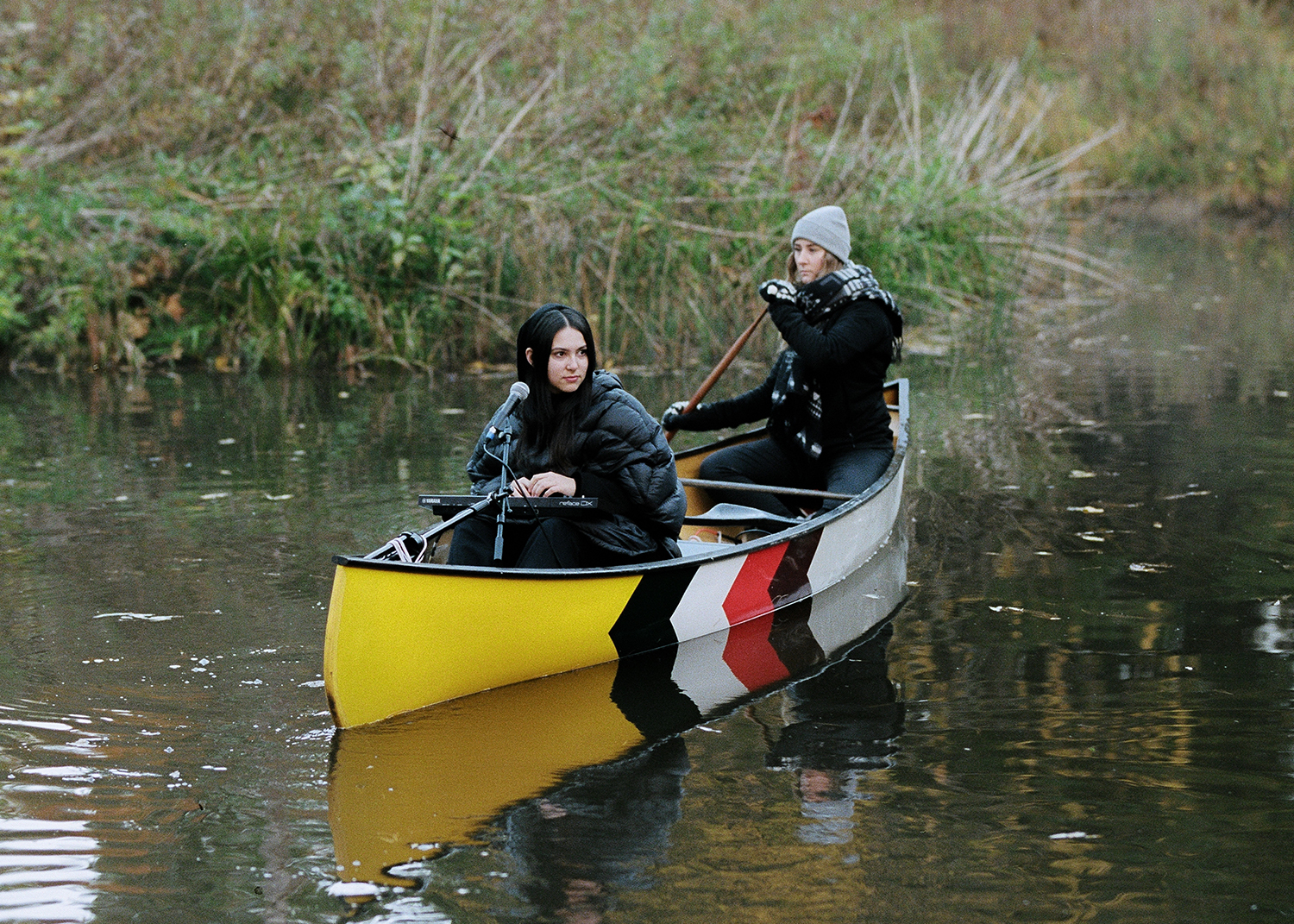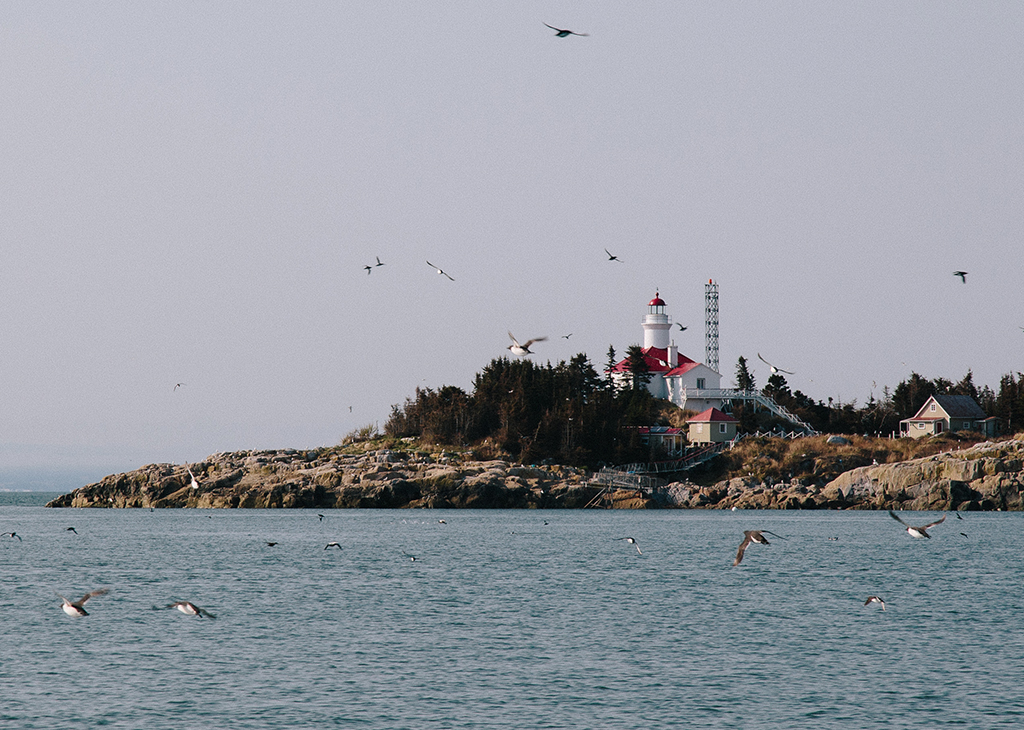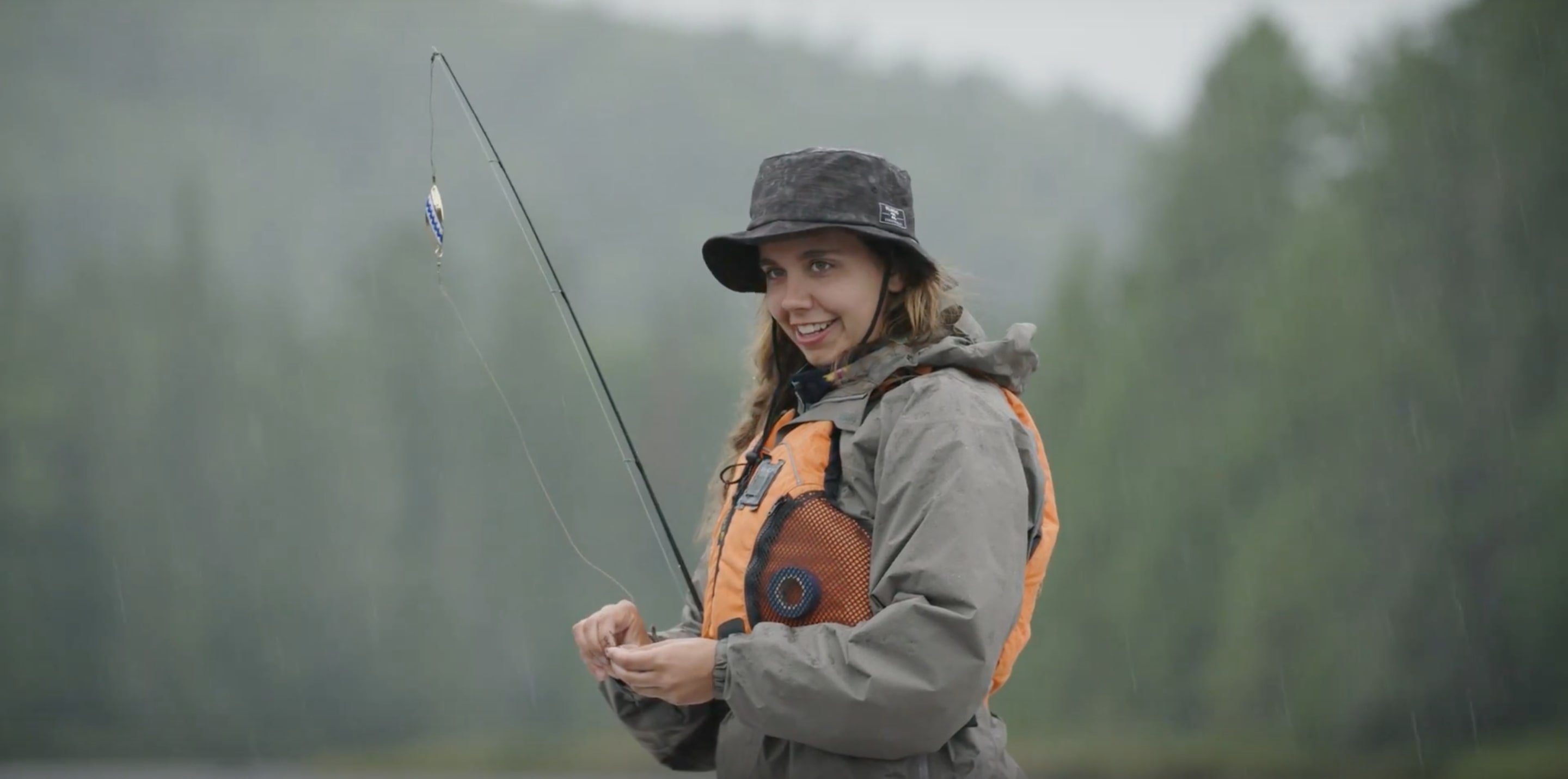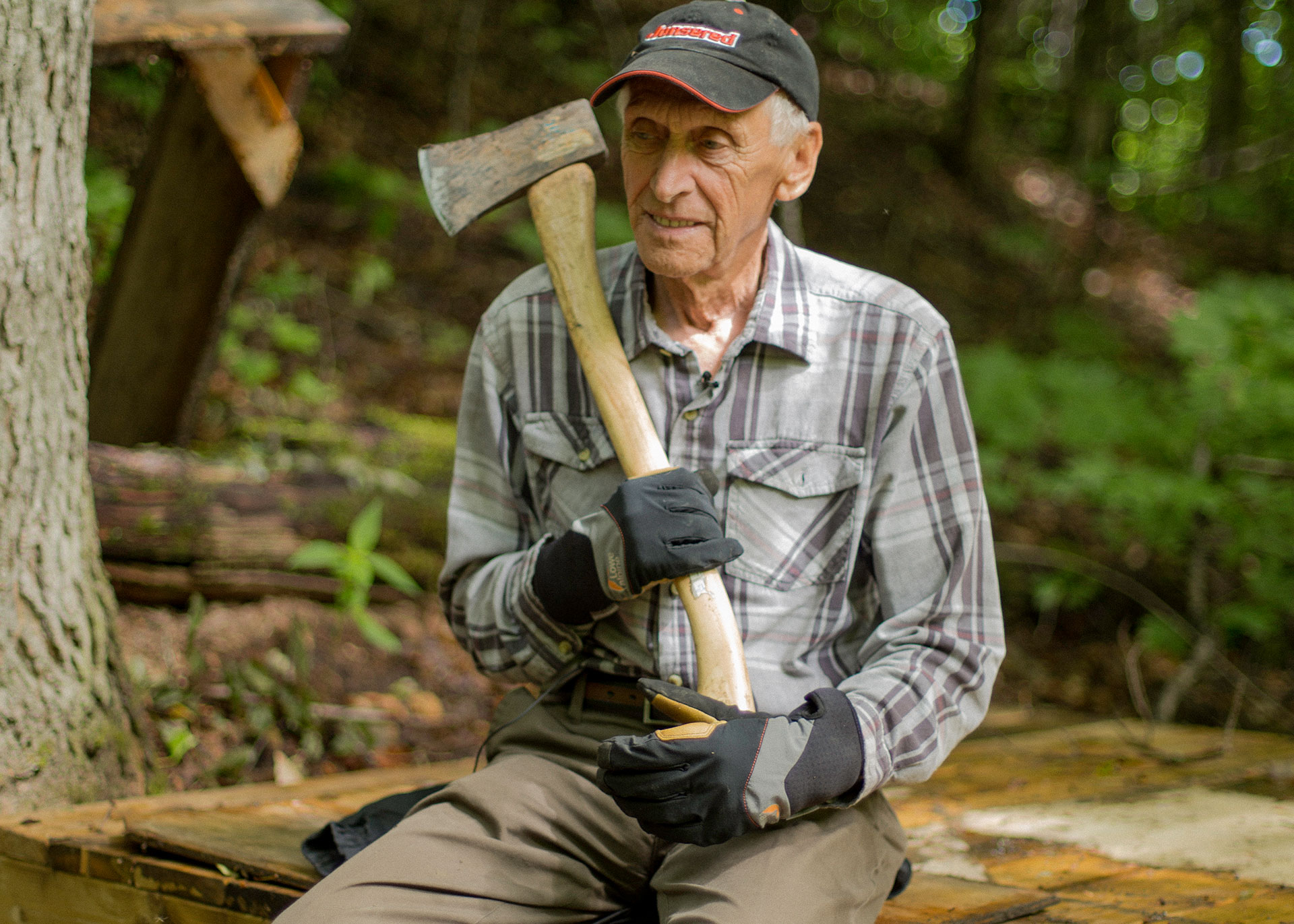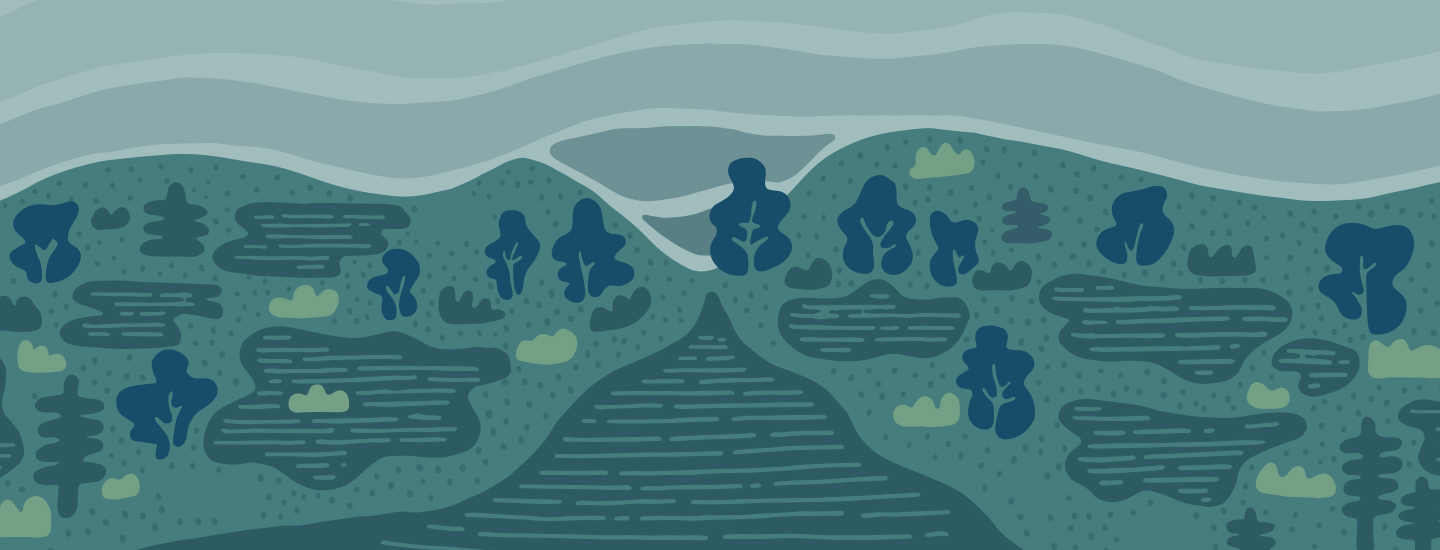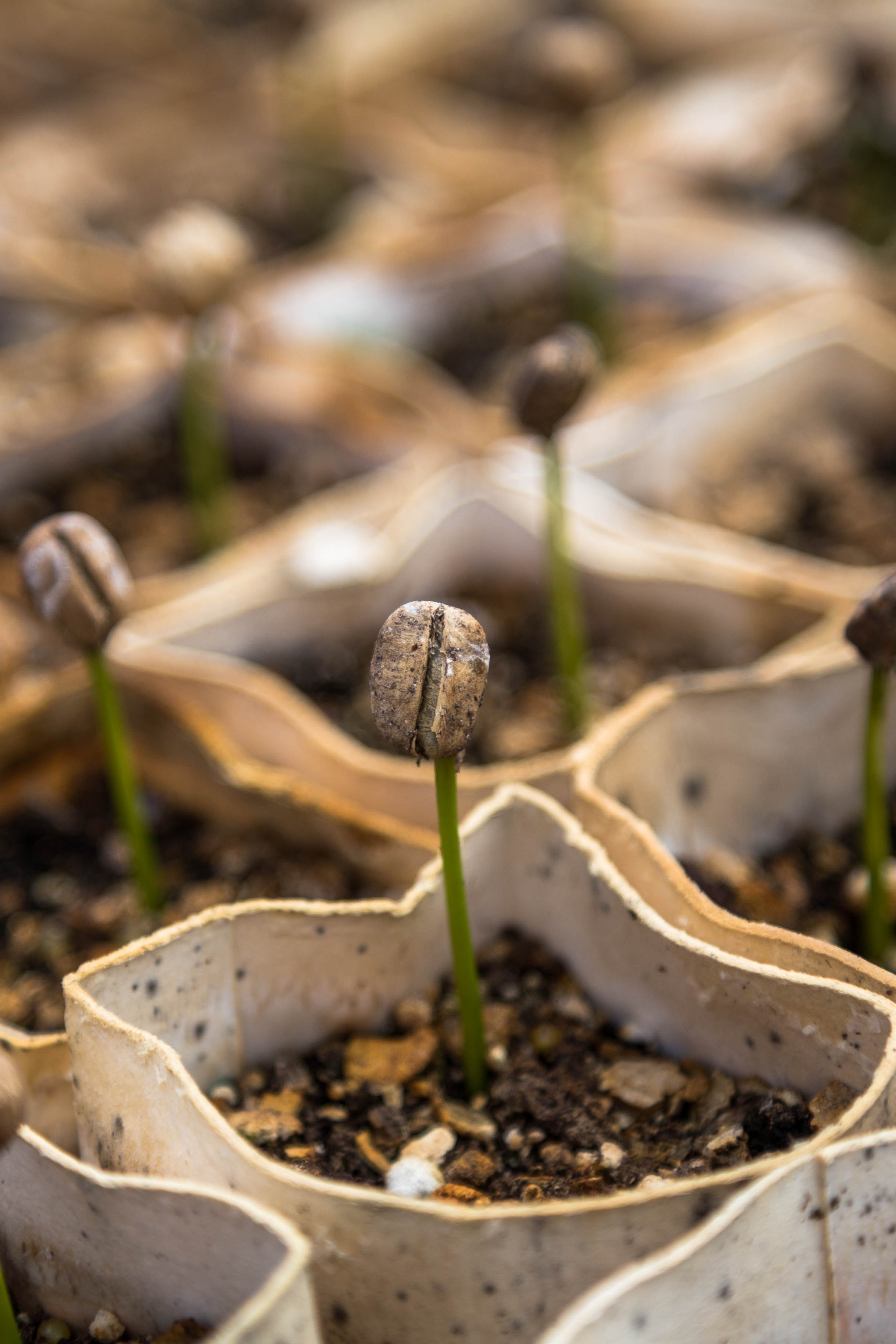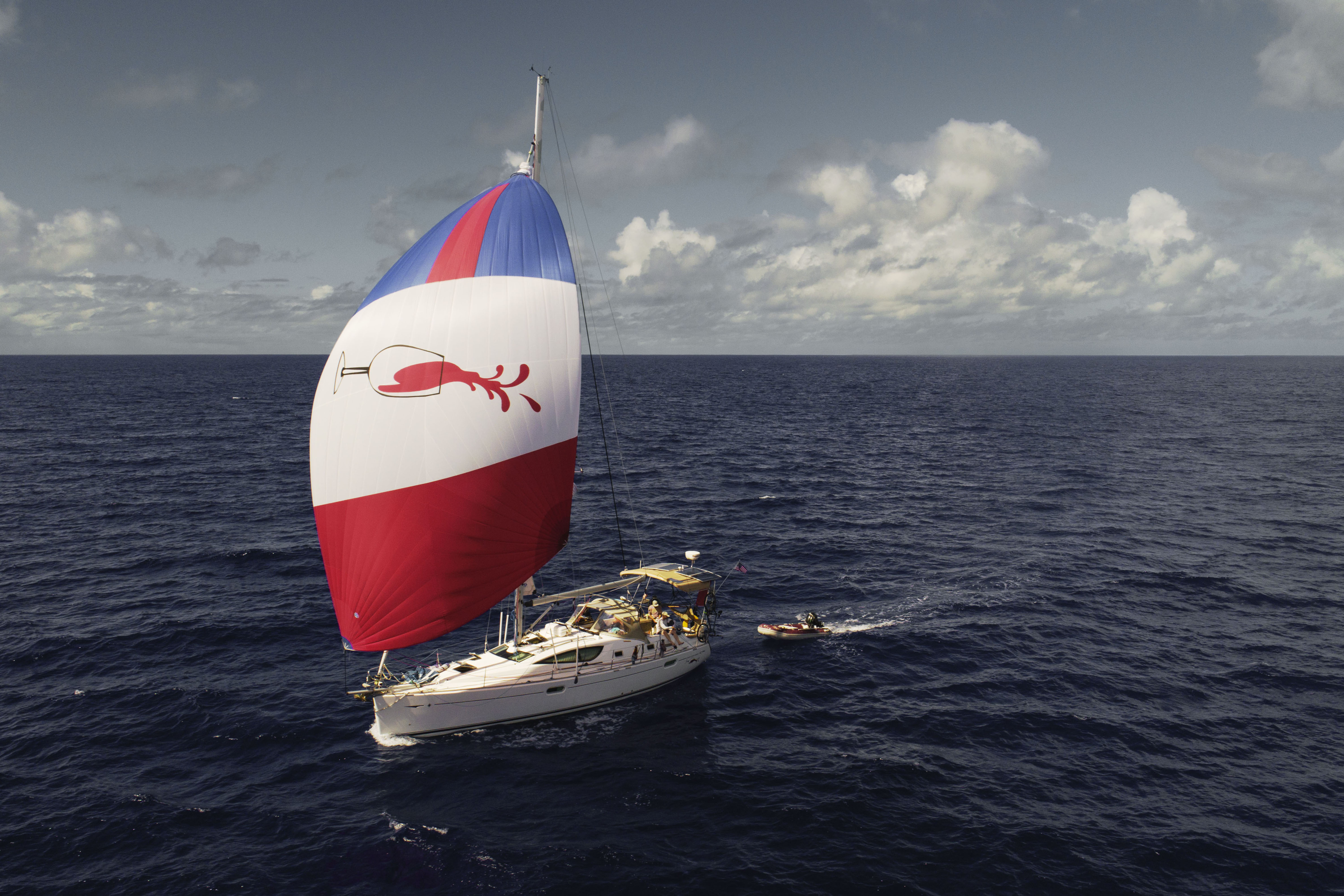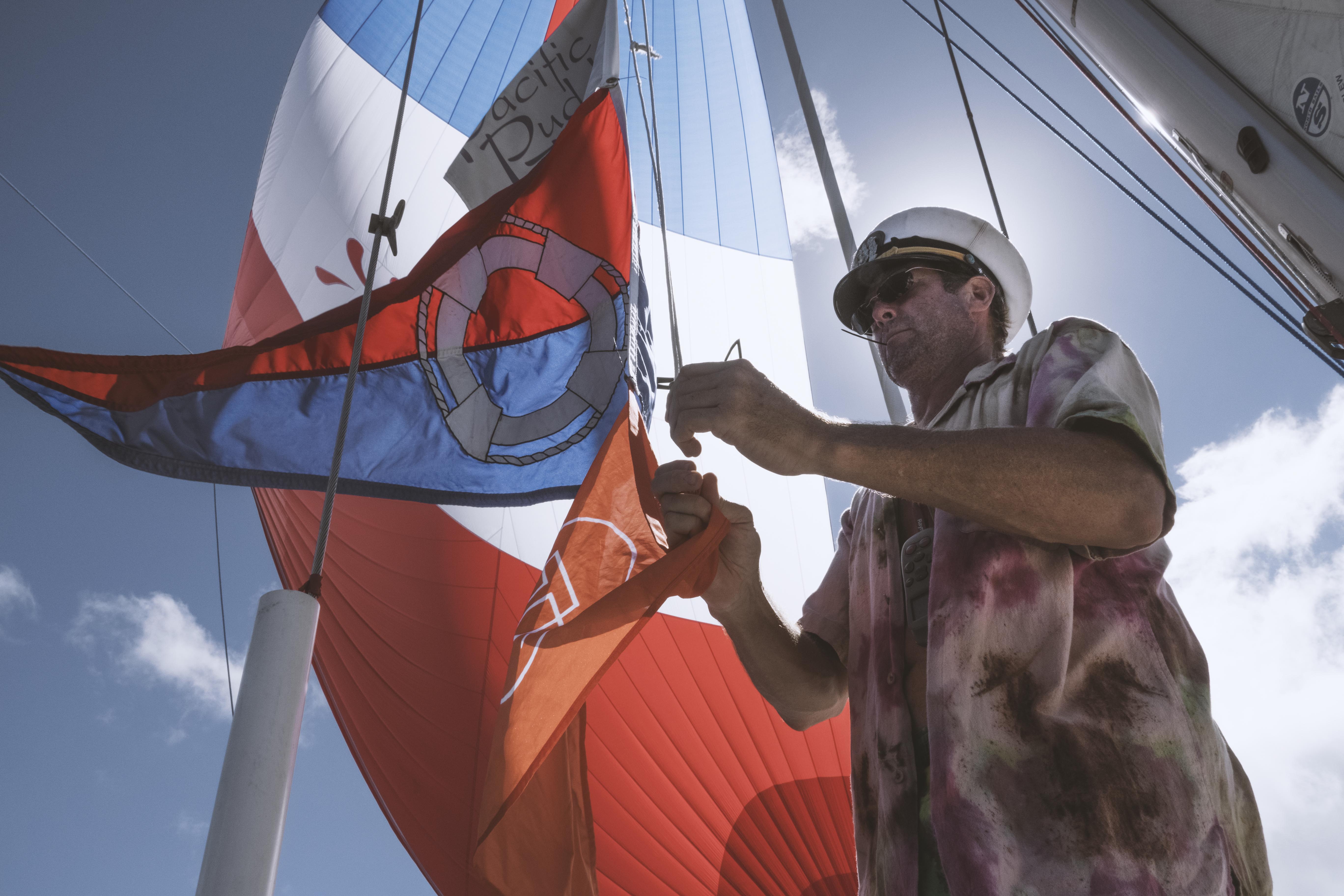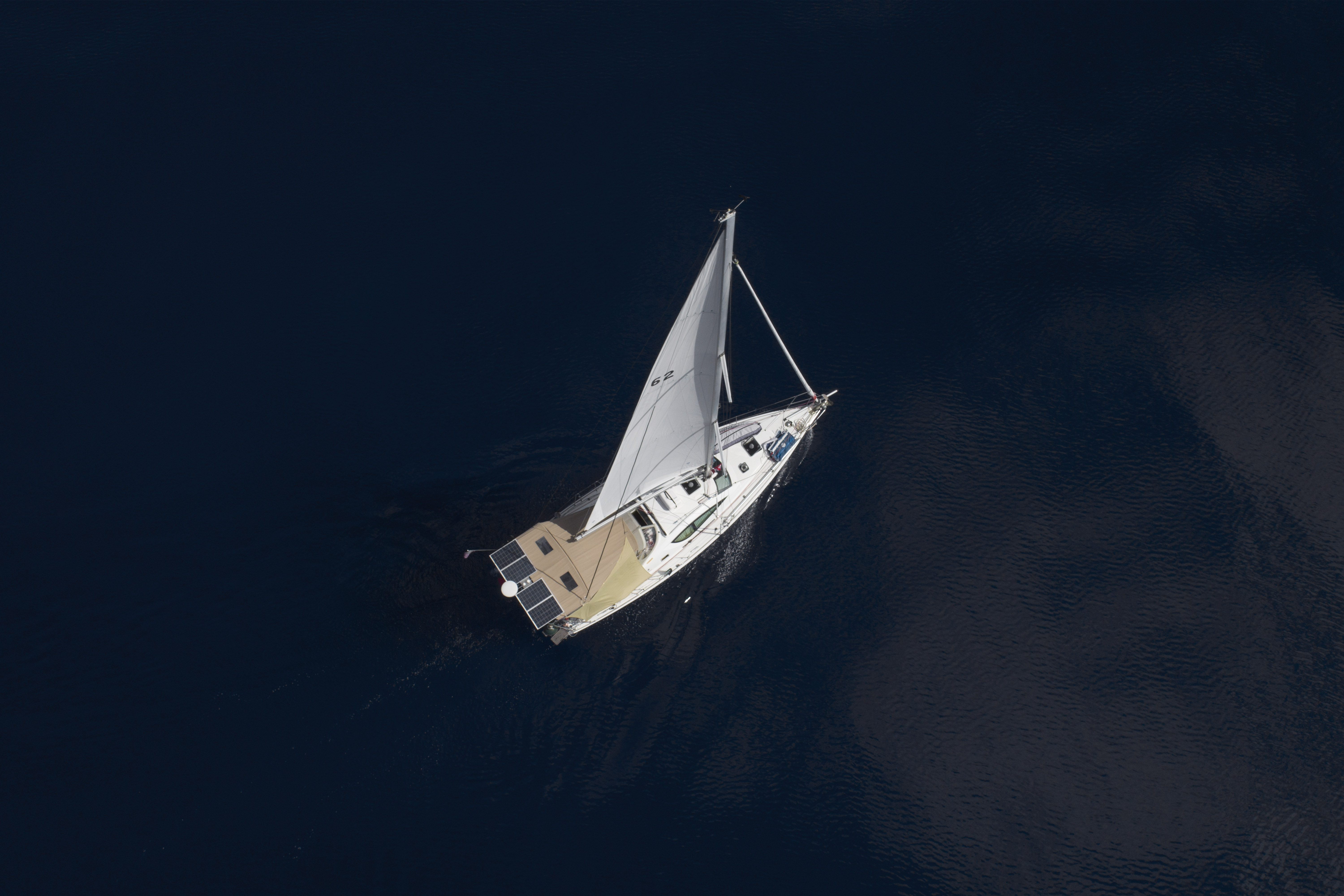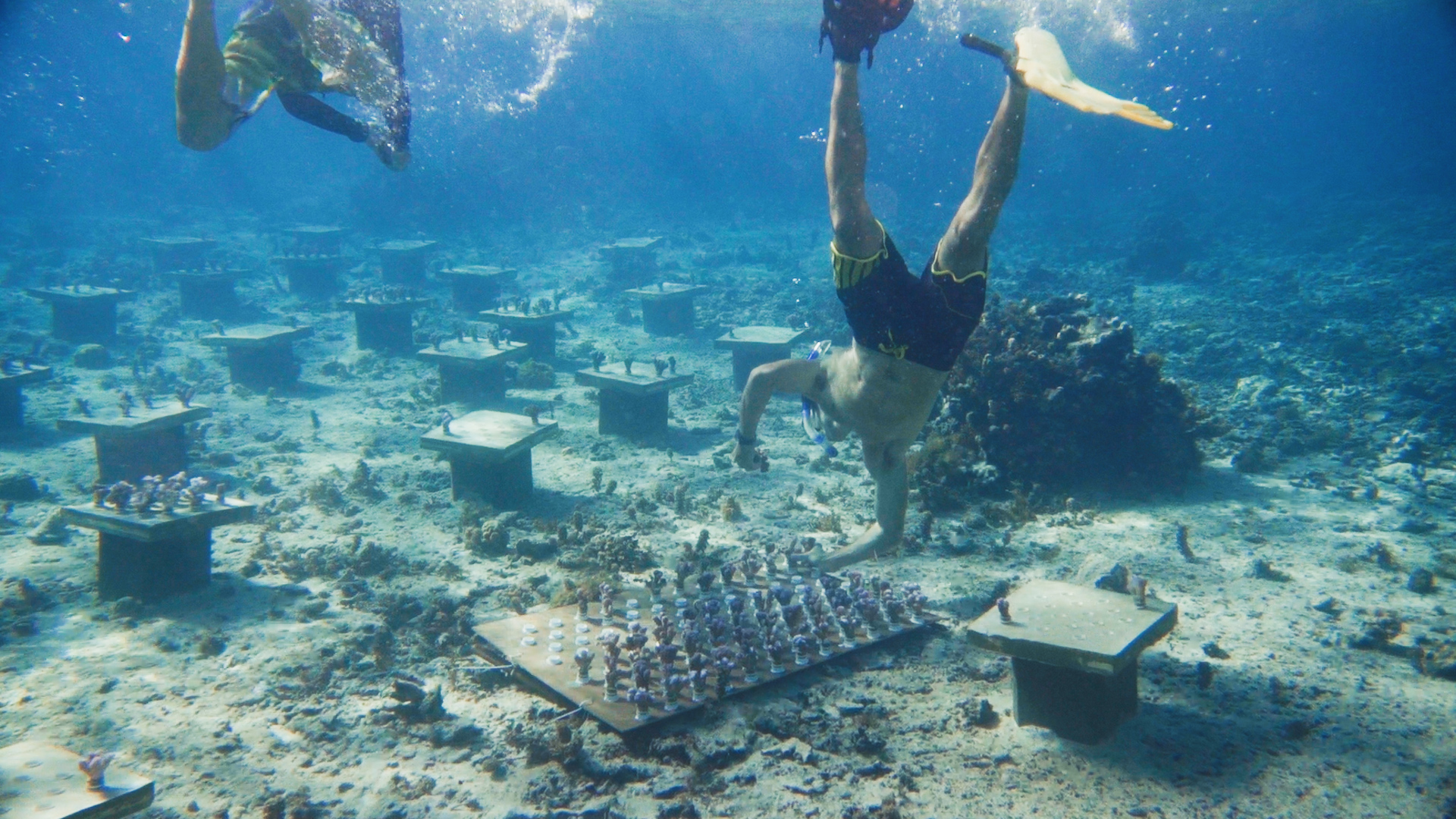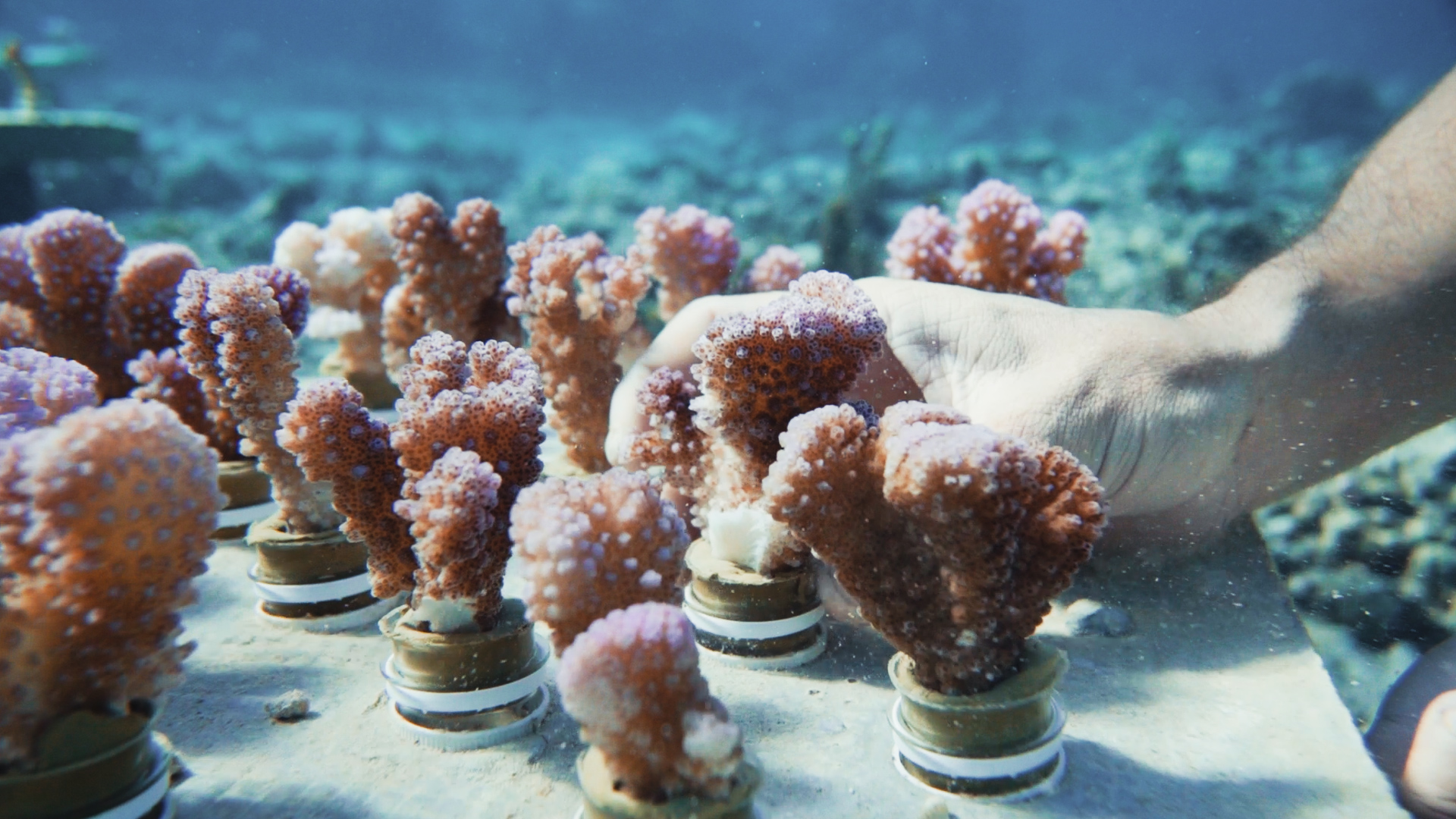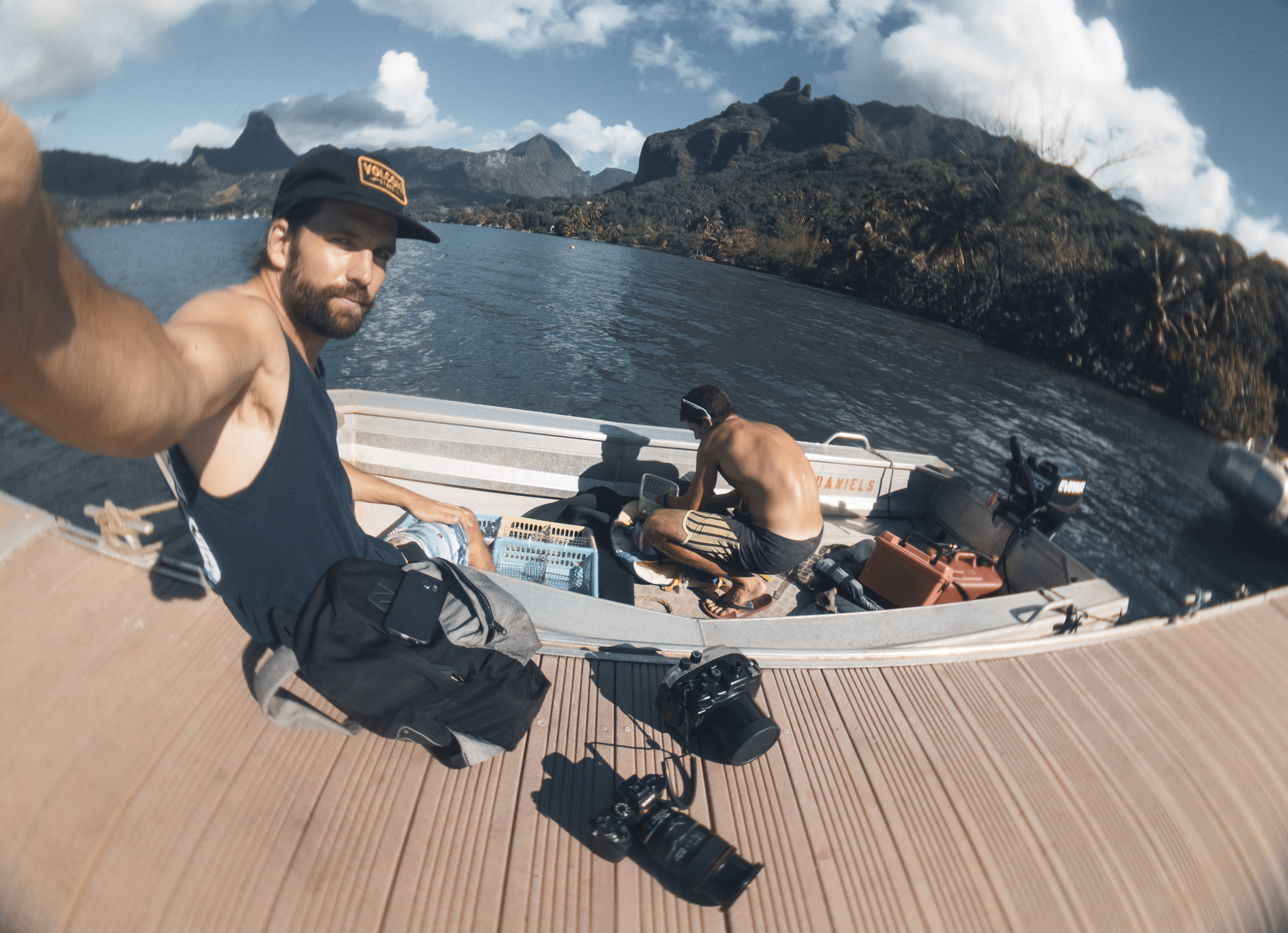Across the Salty Roads
An inspiring journey hitchhiking by sail across the South Pacific Islands to collect stories of locals taking the initiative in the fight against climate change.

Crossing
Tahiti to Mo’orea
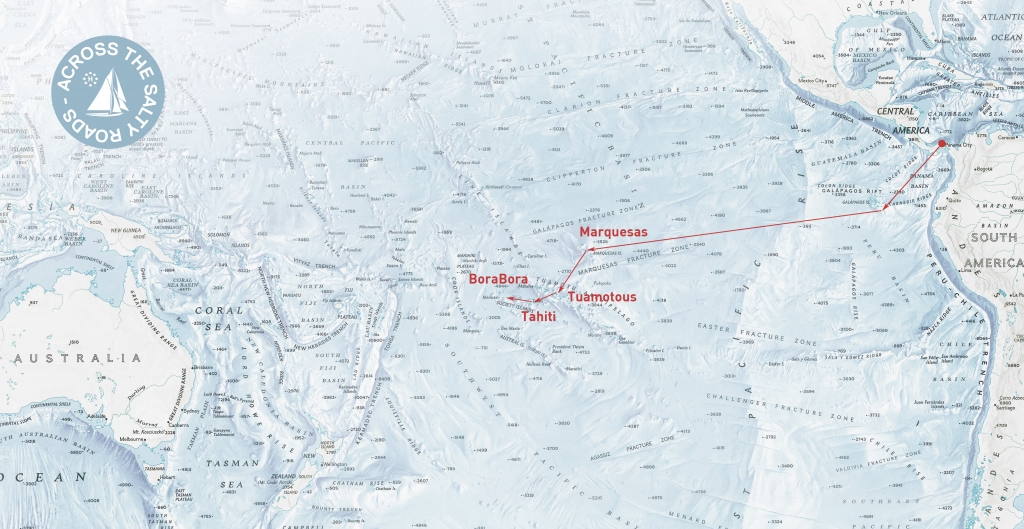
Travelling around Tahiti, Guillaume heard about coral gardeners working on reviving the neighbouring islands. After many weeks in Papeete, he decided this was a good opportunity to continue his journey across the Pacific, heading west. But first, he had to find a new ride.
He employed his regular strategy: posting on the message boards and roaming the docks to make connections. Then he stumbled upon an annual sailing event from Tahiti to Mo’orea. Joining the Pacific Puddle Jump would connect him with hundreds of sailors, changing his journey for the months to come.
He met with Anja and Thomas from Switzerland and jumped on their quite stylish 30-year-old steel boat, Robusta. They set sail alongside 30 other vessels for a spectacular crossing to Mo’orea.
–
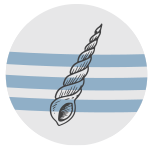
Mo’orea
The Coral Gardener: Cody Clement
After the hustle and bustle of Papeete, the lush mountains, calm waters, and rich local culture of Mo’orea slowed Guillaume down and seemed like the perfect terrain for research. He headed straight to the Berkeley University campus, seeking out a coral gardener called Cody Clement, an American scientist doing his Ph.D. in biology, who told Guillaume that corals are one of the first ecosystems to start showing signs of major global stress. Because they are so sensitive, they can be affected by minor fluctuations in temperature that can lead to bleaching, amongst other effects.
“We call them the canary in the coal mine. Coal miners used to go down in the mine and bring the canary in the cage with them because if there were dangerous fumes the canary is going to drop dead. That tells you it’s time to get out of here.” — Clement
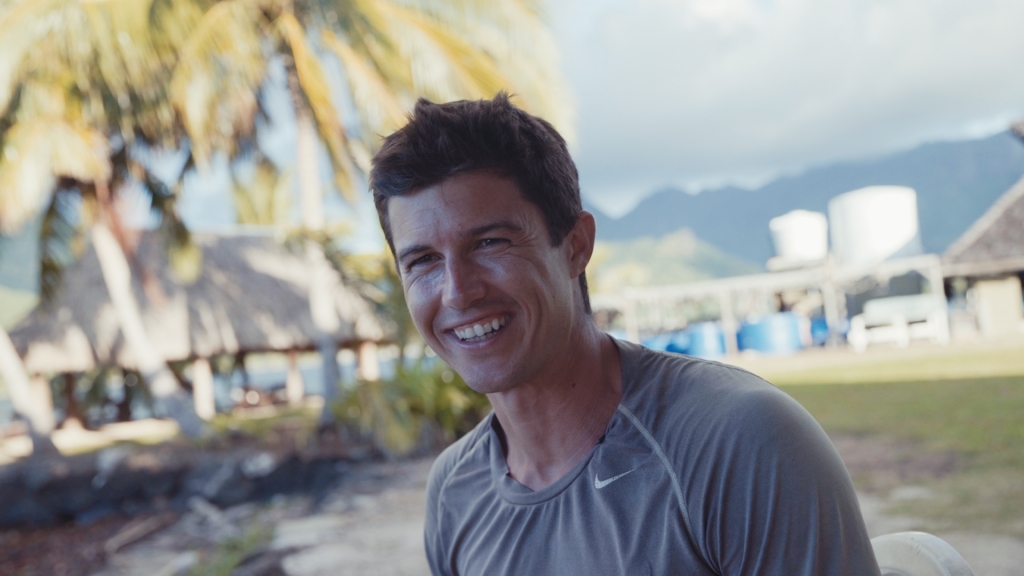
Clement has personally seen mass bleaching going on in Fiji over the last few years, and his observations have been validated by scientists all over the world who are recording data on corals. All come to the same conclusion: Coral cover is declining dramatically due to a cocktail of stressors, including overfishing, runoff from the land, waste water, sea star outbreaks, and so on.
“The good news is that we have these coral planting efforts going on all around the world trying to rehabilitate corals. We are seeing more marine protected areas being set up throughout the Pacific. It’s now coming on people’s radar that it is an important thing to do. Set aside areas so they can rehabilitate and they can recover.”
Clement explains that he is conducting experiments where he varies the number of species present in the coral community to see how that impacts the performance of the corals. Coral reefs are one of the most biodiverse systems on earth, so he is looking for ways to increase the efficiency of his planting efforts.
Guillaume then followed Clement around a strange yet fascinating nursery to see underwater gardening for himself. This first encounter with a coral gardener left him curious and hopeful. The research and development path he was exploring on this trip was now a third key step added to this global warming fight list, complementing recent learning about the rule of law in Tahiti and the education projects he filmed in the Marquesas.
–

Bora Bora
The Coral Gardener: Denis Schneider
Guillaume then arranged with his fellow sailors Dr. Barry and his wife Nancy for a new departure toward the alluring islands of Huahine, Ra’iātea, Taha’a, and Bora Bora. Despite a slow start because of strong winds, they finally got to their final destination. One more coral class was awaiting him, this time with Denis Schneider, a French scientist and entrepreneur working in Bora Bora. Schneider is currently working with Biorock Technology, a U.S. patent from Maryland, which consists of a low-voltage electric field system. Schneider and his team catalyze processes to boost corals and make them more resistant to the changes happening caused by global warming.
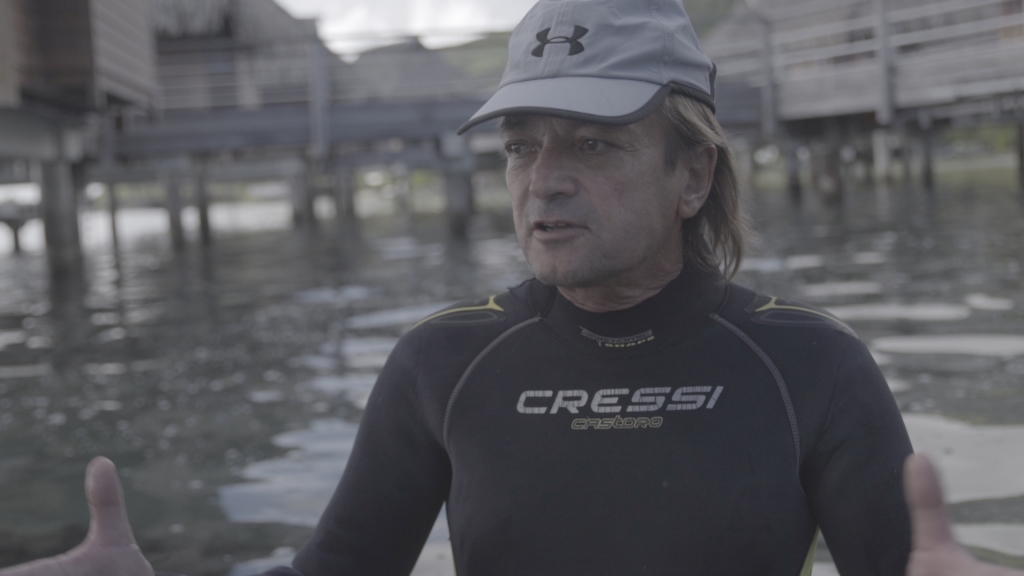
“We stagnated with the previous technique using concrete reefs, so when we came across Biorock’s results it was a true revolution for us. We allow the corals to grow more because of the iron, calcium, and magnesium flourishing on these structures, they are part of the coral diet. The main interest of Biorock is not necessarily to make corals grow faster but to allow them to grow for a longer period.” — Schneider
Schneider is one of many coral gardeners who have made it a business to grow nurseries around the island group. He is using tourism as a means to revive the coast and promote sustainable practices.
As the many gardeners take care of these reefs, billions and billions of larvae spread across the lagoon during periods of reproduction. It’s a coral legacy maintained with constant work and effort. Biorock now exists in over 30 destinations around the world and is being implemented in new areas of the South Pacific.
It is with that wealth of knowledge and positive insight that Guillaume embarked on his next crossing, headed 500 miles away this time for a small group of islands on a mission to revive its ancestral ways, living sustainable principles…
–

Episode 04
The Coral Gardeners
Guillaume embarks on a Tahiti-Mo’orea crossing to reach new South Pacific islands on his route that will enable him to report on an essential component of sustainability in the region: coral reef ecology. He makes a first stop in Mo’orea to converse with scientist Cody Clement from Berkeley University, before heading to Bora Bora to visit French scientist and entrepreneur Denis Schneider’s sea experiments. Both coral gardeners are working on innovative methods to revive coral reefs, to help them gain maturity more efficiently in warming waters.
